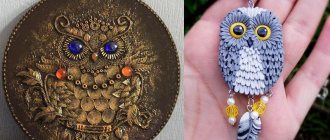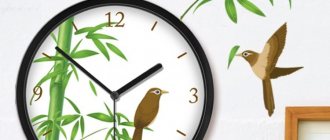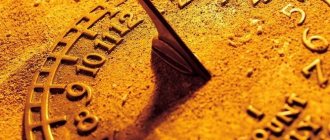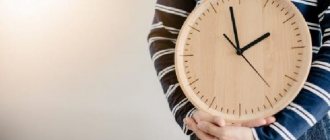Incredible facts
People who prefer a nocturnal lifestyle are more likely to have “dark” character traits than early risers.
In a new study conducted by scientists from Liverpool Hope University
and
the University of Western Sydney
in Australia, found that night owls are more likely to exhibit the so-called
dark triad
.
The Dark Triad is a set of characteristics that includes psychopathy, narcissism, and the tendency to manipulate others.
.
According to a new theory, these personality traits arose because darkness gives criminals and scammers the ability to hide from prying eyes, giving them an evolutionary advantage.
How to transform from an owl to a lark?
The study was conducted on 263 college students who answered questions regarding morningness or nighttime preference. In addition, they took a test to identify traits such as narcissism, psychopathy and Machiavellianism, characteristic of the “Dark Triad”.
The results showed that “night” people were more likely to have these personality traits
, regardless of gender.
From an evolutionary point of view, the darkness of the night made it possible to hide the theft of females from male animals. It also encourages casual sex and risky behavior.
. As you know, in nature, many predators such as lions, hyena dogs and scorpions prefer to hunt at night.
Are larks born or made?
Roman Buzunov, head of the sleep medicine department of the Barvikha clinical sanatorium, Honored Doctor of the Russian Federation:
The tendency to go to bed or wake up early or late is genetically predetermined, like eye color or shoe size. Circadian, or daily, rhythms vary from person to person. A person’s biological clock can lag behind the astronomical one - in which case he is a night owl, or rush - in which case he will be a lark.
Mikhail Poluektov, head of the department of sleep medicine at the 1st Medical University named after I.M. Sechenov:
The ability for a shorter or longer sleep-wake cycle is inherent at the cellular level: one interesting study was conducted that compared the periods of activity of skin cells, fibroblasts, in larks and owls - they differed by several tens of minutes. In addition to the genetic mechanism, there is also a so-called time-setter. For living beings, the main time-setter is sunlight. When the first rays of the sun hit the retina of the eye, regardless of whether the person is an owl or a lark, his internal clock is set to the right time. Although for larks and owls these clocks are set differently.
Vladislav Vyazovsky, neurophysiologist, senior researcher at the Department of Physiology, Anatomy and Genetics at the University of Oxford:
There are many genes that are somehow associated with sleep. Through experimental mutagenesis, breeds of mice and fruit flies have been bred that sleep less or more than they should, or fall asleep earlier or later every day. Probably, in a family of larks, children are more likely to be like this too, because they have lived from early childhood in the mode of larks - among them there may be both real larks who inherited this chronotype, and involuntarily larks, who in fact, at the genetic level, are more likely owls, but they don’t know about it.
Can a person born an owl transform himself into a lark?
Vladislav Vyazovsky:
There are no simple recommendations for becoming a morning person. If you're not already a morning person, it's hard to become one, at least as far as I know. In order to change the period of the daily rhythm, a fundamental change is required at the level of gene expression, protein synthesis, etc., and this will have serious consequences for many other aspects of physiology, such as metabolism. On the other hand, sleep is regulated not only by circadian rhythms. We fall asleep not only when the sun sets, but also when we are tired, and we wake up not only when dawn comes, but rather when we have had enough sleep (at least in conditions where other factors are excluded). Therefore, if you systematically go to bed early, then waking up earlier will also be easier.
Scientists are divided on whether it is possible to become a morning person for sure and never return to nightlife, to the point that experts argue, for example, whether students should have the right to go to school later if they are night owls, and here opinions are divided . Some believe that owls are thus subject to chronotype discrimination: the fact that they should wake up early is contrary to their nature. Others believe that it is enough to go to bed earlier and you can readjust and become a morning person.
I can say the following about smartphone applications—sleep trackers with smart alarm clocks that analyze a person’s sleep using a motion sensor and wake him up in REM sleep. If the app helps a particular user, that's great, and it doesn't matter whether it's just a placebo effect, which it most likely is, or whether the app actually sometimes guesses the correct sleep stage to wake up from. It is possible that if the tracker really accurately detects the fast phase of sleep and wakes you up exactly at it, it will actually be easier to wake up. I know of one more or less serious study of one of the trackers, in which sleep stages determined by the device were compared with objectively determined stages using polysomnography, and the results were rather negative. I would conduct a study in which subjects would not know whether an alarm clock was ringing in REM sleep or NREM sleep, and upon awakening they would have to answer a series of questions about their well-being and mood. I think if they were told that they were being woken up by a super sensitive tracker, they would definitely feel more alert and cheerful when they woke up.
Roman Buzunov:
It is impossible to radically change your biological clock, determined by genetics, and turn from a night owl into a lark, but you can do something that will allow a person to live with it better and easier.
— It is advisable to go to bed and get up at the same time, regardless of whether it is a working day or a day off. During the work week, night owls develop a sleep deficit because they get up for work at six in the morning, but go to bed late, say at midnight or at one. On Friday, before the weekend, owls stay out until two o'clock in the morning and on Saturday they wake up at noon, having had a wonderful night's sleep. Because the owl slept well, the next day she goes to bed at three o'clock in the morning and wakes up at one o'clock on Sunday, having slept even better. But if a person woke up at six in the morning in the middle of the week, and at noon on the weekend, then he shifted his biological clock back six hours. On Monday you need to “speed up” them and get up six hours earlier, and this return is quite painful. Such a weekend is comparable to a flight from Moscow to Khabarovsk and back. Adapting to each offset hour during jet lag usually takes a day. Thus, it will take six days for the body to return to normal after a six-hour shift in the circadian rhythm. But by this time the next weekend will come, and the biological clock will be disrupted again. So if a person wants to minimize the severity of waking up on weekdays, the difference between the time of waking up on weekdays and weekends should not be more than two hours.
- Do not consume anything containing caffeine in the afternoon. Caffeine acts for six to eight hours, respectively, eight hours before you are supposed to go to bed, you do not need to drink not only coffee and tea, but also cola, energy drinks, tonic, etc.
- Regular aerobic exercise is desirable - running, swimming, team sports, etc. - three to four hours before bedtime. During this time, the stress from the load goes away, the person calms down.
- Owls need to stop working at the computer an hour and a half before bedtime. In their case, the hormone melatonin, a regulator of circadian rhythms, begins to be produced later, and the blue radiation of the computer is perceived by the eyes as sunlight, and the body continues to “think” that it is day outside.
— After weekend insomnia, you can take melatonin tablets for two or three days to regulate circadian rhythms.
Other meanings
In Native American traditions, the owl is called the night eagle. Her totem has a special connection with the night and the Moon, while the eagle is associated with the Sun.
The owl is associated with witchcraft in a number of European and Native American traditions. Witches often considered her the main guide among animals.
In Greek mythology, Athena, the goddess of wisdom and war, was often represented as an owl. It is said that the Romans believed that someone would reveal all their secrets while sleeping if a feather from this bird was placed next to their pillow.
Is it true that larks are more efficient and successful than owls?
Roman Buzunov:
According to the specifics of their sleep, people are divided not only into larks and owls, but also into short sleepers, who only need four to five hours of sleep to get enough sleep, and long sleepers, who need ten to twelve hours. Short sleepers, of course, manage to do more and quickly achieve some results in work and study if they pay due attention to them. Long sleepers find the same amount of work somewhat more difficult. So career success does not directly depend on whether you are a morning person or a night owl. You can also be a short-sleeping owl. It is clear that long-sleeping owls have the worst life because they are more likely to develop sleep debt. Long-sleeping people should not be considered lazy slow-witted people, even if attitudes like Moscow never sleeps take root in our society: Einstein said that if he did not sleep for ten hours, he would not invent anything. Short-sleeping people use up their body's resources faster, which is why they have more psychosomatic disorders and develop cardiovascular diseases earlier. The situation gets worse closer to retirement age, because the body needs more hours of sleep over the years, but the brain still does not allow sleep for more than five hours. Because of this, short sleepers may develop severe insomnia in old age.
Mikhail Poluektov:
Larks will always have an advantage over night owls because employers love subordinates who come to work early. People who are sure that they are inveterate night owls better not go against nature, because nature does not like it. They should look for a creative profession that does not require waking up early.
What is especially important for people is not the solar, but the social time-setter: regardless of whether it is day or night, you will set the alarm clock for six o’clock in the morning, get up and go to work, because the boss said to show up at eight o’clock in the morning. This timer helps, if desired, to easily change a person’s preferences and turn from a night owl to a lark and vice versa. It is difficult to say what the relationship between the degrees of influence of genetic and external factors is, but, most likely, 30% of “earlyness” or “earlyness” is determined by genetics, and the remaining percentage is determined by the external environment. Therefore, if we want to become a lark instead of an owl, there is no problem: it is enough to give powerful motivation in the form of a salary and social bonuses - and we will get up at the crack of dawn, joyfully rush to work and develop vigorous activity in the morning, forgetting that we owls, and vice versa. If a person has spent the entire work week lacking sleep, he should get enough sleep on the weekends: you can and should stock up on sleep, and it doesn’t matter how many times a day you go to sleep.
Vladislav Vyazovsky:
I don't think larks are any more efficient than owls, and if they are, there could be many reasons for this, such as them getting more natural daylight or being able to work early in the morning in a quieter environment with less noise. Therefore, theoretically, if owls had the opportunity to be in the same conditions, they would probably be just as “effective”, and the point is not at all in the chronotype, but in the conditions in which we live and work.
What are the benefits of knowing your chronotype?
What is the use of knowing when your mental and physical productivity will peak? With this information, you can optimize your workflow so that key tasks occur at peak performance. It is best to purposefully leave the most difficult tasks for peak performance.
You will understand what time is most convenient for sleep so that you have enough time to get enough sleep.
What distinguishing features do you know between owls and larks? Share your knowledge in the comments.
Is it true that you need eight hours of sleep?
Vladislav Vyazovsky:
Scientists' opinions on the optimal number of hours of sleep vary: some believe that you need to sleep seven to eight hours, others believe that you need to sleep as much as you want, and some researchers are even sure that there may be no “obligatory” sleep at all. a little, but longer is just for fun or to fill the time with something. What is important is not only, and probably not so much, the duration of sleep, but its quality, which is expressed in the distribution of sleep stages, characteristics of the encephalogram, and so on. For example, with age, sleep becomes shorter and more shallow, but this does not mean that it is disturbed; there may be less need for it.
Mikhail Poluektov:
The main criterion for assessing the required duration of sleep is daytime well-being: if a person has no complaints during the day after six hours of sleep, it means that such a duration of sleep is programmed genetically. The population norm of sleep is seven to eight hours, and this is not a recommendation for how much sleep you need, but the figure most often found in relevant professional surveys. Swiss scientists observed the sleep of newborns and found that every year children's average daily sleep duration decreases slightly. This may indicate a slow but steady process of evolution that selects for people who sleep less because they can function efficiently the rest of the time.
Through the prism of popular culture
Thanks to modern literature, such as the story of Winnie the Pooh, and through folklore, we continually associate owls with wisdom. However, there are other qualities that this bird has. These predators are often perceived as mysterious mainly because most of them are purely nocturnal creatures, and people have always endowed this part of the day with ominous qualities, associating it with mystery and the unknown. Owls live in darkness, which evokes thoughts of magic, secrets and ancient knowledge. The night refers to the Moon, with which these birds are also strongly associated. During the renewal cycles of the night luminary, they were even considered a symbol of femininity and fertility.











